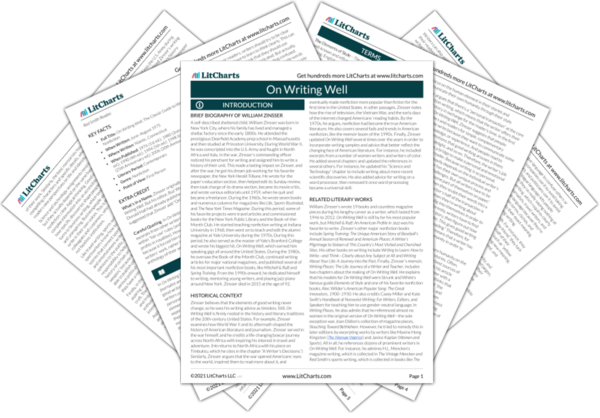Zinsser lived most of his life in an era when men controlled the writing profession and used “he” as a default pronoun. He even followed this sexist norm in the first edition of
On Writing Well. But after reading Miller and Swift’s
Handbook of Nonsexist Writing, he started advocating for equitable language. His principles also apply to other kinds of diversity besides gender. Specifically, inclusive language shouldn’t compromise clarity. When it does, the solution isn’t to give up: it’s to find better inclusive language. The best terms and phrases often depend on context, so writers should rework their sentences until they find a solution that fits.


